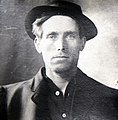Portal:Organized Labour

Introduction

- In trade unions, workers campaign for higher wages, better working conditions and fair treatment from their employers, and through the implementation of labour laws, from their governments. They do this through collective bargaining, sectoral bargaining, and when needed, strike action. In some countries, co-determination gives representatives of workers seats on the board of directors of their employers.
- Political parties representing the interests of workers campaign for labour rights, social security and the welfare state. They are usually called a labour party (in English-speaking countries), a social democratic party (in Germanic countries), a socialist party (in Romance countries), or sometimes a workers' party.
- Though historically less prominent, the cooperative movement campaigns to replace capitalist ownership of the economy with worker cooperatives, consumer cooperatives, and other types of cooperative ownership. This is related to the concept of economic democracy.
The labour movement developed as a response to capitalism and the Industrial Revolution of the late 18th and early 19th centuries, at about the same time as socialism. The early goals of the movement were the right to unionise, the right to vote, democracy and the 40-hour week. As these were achieved in many of the advanced economies of western Europe and north America in the early decades of the 20th century, the labour movement expanded to issues of welfare and social insurance, wealth distribution and income distribution, public services like health care and education, social housing and common ownership. (Full article...)
Selected article
A business union is a type of trade union that is opposed to class or revolutionary unionism and has the principle that unions should be run like businesses.
Business unions are believed to be of American origin, and the term has been applied in particular to phenomena characteristic of American unions. This idea originated over the court's[which?] difficulty when regulating worker's industrial rights, specifically following the decades after the Civil War. Hyman (1973) attributed the term "business unionism" to Hoxie, but Michael Goldfield (1987) notes that the term was in common usage before Hoxie published in 1915.
According to Goldfield, Hoxie used the term to describe trade-consciousness, rather than class-consciousness; in other words, according to Hoxie, business unionists were advocates of "pure and simple" trade unionism, as opposed to class or revolutionary unionism. This sort of business unionism is what Eugene Debs often referred to as the "old unionism". (Full article...)April in Labor History
Significant dates in labour history.
- April 01 - Burston Strike School began in 1914 the U.K.; the 1972 Major League Baseball strike began in the U.S. and Canada; the 1980 New York City transit strike began; the U.S. Supreme Court decided NLRB v. Truck Drivers Local 449; the Federation of Unions of South Africa was founded; the Allied Pilots Association was founded; the Loray Mill strike began in the U.S. in 1929; Sol Chick Chaikin died
- April 02 - Weldon Mathis was born; Eugene Hanley was born; the 1994–95 Major League Baseball strike ended in 1995
- April 03 - Percy Wells died
- April 04 - The On-to-Ottawa Trek began in Canada in 1935; William Quesse was born; the 2006 Minor League Baseball umpire strike began in the U.S.
- April 06 - Rose Schneiderman was born; the 1905 Chicago Teamsters' strike began as the Teamsters engaged in a sympathy strike; B. T. Ranadive died
- April 07 - The U.S. Supreme Court decided Lochner v. New York; Basawon Singh (Sinha) died
- April 08 - The 1998 Australian waterfront dispute began
- April 09 - John H. Dent died; the U.S. Supreme Court decided Adkins v. Children's Hospital and Bunting v. Oregon; Chris Watson was born; President Harry S. Truman nationalizes all steel mills in anticipation of the 1952 steel strike; Natascha Engel was born; Thomas Jackson was born
- April 10 - Harold J. Gibbons was born; Dolores Huerta was born; Joseph Diescho was born; George Lippard was born; Edward J. Carlough was born; Lee Batchelor was born; Anna Walentynowicz died
- April 11 - The 1980 New York City transit strike ended
- April 12 - Tom Addison was born; the U.S. Supreme Court decided NLRB v. Jones & Laughlin Steel Corp.; the Auto-Lite strike began in 1934 in the U.S.; the Union Label Department, AFL–CIO was founded; the Memphis sanitation strike ended; the Queensland Council of Unions was founded; the Sons of Vulcan was founded
- April 13 - Henk Sneevliet died; the Laborers' International Union of North America was founded
- April 14 - Dorothy Jacobs Bellanca was born; Marvin Miller was born; Ernest Bevin died
- April 15 - A. Philip Randolph was born; Pablo Manlapit died; the American Federation of Teachers was founded; "Black Friday" occurred in 1921 in the U.K.; Aleksei Gastev died; the Trade Unions Forum was founded; Margaretta Scott was born
- April 16 - Joseph Havelock Wilson died
- April 17 - Manwel Dimech died
- April 18 - Joseph Labadie was born; R. J. Thomas died
- April 20 - Gro Harlem Brundtland was born; The Ludlow Massacre occurred in 1914 in the U.S.; the International Harvester strike of 1979–80 ended
- April 21 - The Bituminous coal miners' strike of 1894 began in the U.S.; the First Employment Contract is repealed in France in 2006
- April 22 - Frederick Nicholas Zihlman died
- April 23 - Russell Crowell was born; the Canadian Labour Congress was formed; Cesar Chavez died; the Hock Lee bus riots occurred in 1955 in Singapore; Edward Lamb was born
- April 25 - Arnold Miller was born
- April 26 - United Trade Union Centre (Lanin Sarani) was founded
- April 28 - Workers' Memorial Day; Roy Lee Williams died; Bob White was born; Greg Combet was born; Jerry Horan died; Joseph Glimco died
- April 29 - The Coeur d'Alene miners' dispute of 1899 occurred in the U.S.
More Did you know (auto-generated)
- ... that during the 1913 El Paso smelters' strike the Industrial Workers of the World and the Western Federation of Miners competed to organize the strikers with their respective labor unions?
- ... that Surinamese trade unionist Louis Doedel was involuntarily committed to a psychiatric hospital by the governor-general for 43 years?
- ... that the Women's National Basketball Players Association was the first trade union for professional women athletes?
- ... that when journalist and trade unionist Nisn Pups was released from jail, the Communist Party of Lithuania instructed him to change his name?
- ... that Italian anarchists founded the first trade union for bakers in Argentina?
- ... that in the 1951 court case Kuzych v White, on appeal from the British Columbia Court of Appeal, five law lords of the British Judicial Committee ruled in favour of a Communist-led trade union?
Related Portals
Selected image
Selected Quote
The hospital strikers have demonstrated that you don't get a job done unless you show the Man you're not afraid...If you're not willing to pay that price, then you don't deserve the rewards or benefits that go along with it."
|
— Malcolm X. |
Did you know
- ...that while the first union was founded in 1927, Tanzania did not have a significant labor movement until the 1940s?
- ...that during a copper miners' strike in Michigan in 1913, labor leader Charles Moyer was shot in the back by unknown assailants and then expelled by Calumet city police while still bleeding?
- ...that while the majority of Benin's formal workforce are represented by trade unions, nationwide use of child labour and forced labour continues?
Topics
Get involved
Associated Wikimedia
The following Wikimedia Foundation sister projects provide more on this subject:
-
Commons
Free media repository -
Wikibooks
Free textbooks and manuals -
Wikidata
Free knowledge base -
Wikinews
Free-content news -
Wikiquote
Collection of quotations -
Wikisource
Free-content library -
Wikiversity
Free learning tools -
Wiktionary
Dictionary and thesaurus















































































